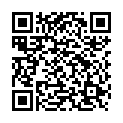|
|
|
| Module code: MST.SPE |
|
2PA (2 hours per week) |
|
3 |
| Semester: according to optional course list |
| Mandatory course: no |
Language of instruction:
English |
Assessment:
Oral exam/project work/composition
[updated 01.10.2020]
|
MTM.SPE (P231-0130, P610-0636) Mechatronics, Master, ASPO 01.04.2020
, optional course, non-technical
MST.SPE Mechatronics and Sensor Technology, Master, ASPO 01.04.2016
, optional course, non-technical
MST.SPE Mechatronics and Sensor Technology, Master, ASPO 01.10.2011
, optional course, non-technical
Suitable for exchange students (learning agreement)
|
30 class hours (= 22.5 clock hours) over a 15-week period.
The total student study time is 90 hours (equivalent to 3 ECTS credits).
There are therefore 67.5 hours available for class preparation and follow-up work and exam preparation.
|
Recommended prerequisites (modules):
None.
|
Recommended as prerequisite for:
|
Module coordinator:
Prof. Dr. Martin Löffler-Mang |
Lecturer:
Ruud Sniekers
[updated 31.01.2013]
|
Learning outcomes:
After completing this module students will be able to:
- discard negative habits and train positive habits;
- self-diagnose paradigmatic behavior and where necessary, adjust accordingly;
- realize which values and principles are important to her/him;
- develop proactive characteristics;
- specify goals and work result-oriented toward achieving these goals;
- distinguish between important and urgent matters and apply the model of time quadrants to their own time expenditure patterns;
- effectively plan tasks and activities;
- self-reflect on the above topics.
Furthermore, students will demonstrate that they have insight into:
- their personal goals, needs and principles;
- their self-image and qualities;
- their habits and behavioral patterns.
[updated 01.10.2020]
|
Module content:
Learning habits
Paradigms, centers and principles
Pro-activeness
Starting with the end in mind
Time expenditure patterns
Relationship bank accounts
Understanding and being understood
Synergies and habit modification
Time management
Self-reflection
[updated 01.10.2020]
|
Teaching methods/Media:
The assignment is to read the book independently (see reading list below), answer special questions and carry out the given tasks.
This module is worth 3 European Credits which justifies the expense of 84 hours:
_ Between 16 and 20 hours for reading the book thoroughly for the first time;
_ For each chapter about 2 hours to think about what this chapter means for you;
_ 20 hours for answering all the questions and carrying out the assignments;
_ 20 hours for completing the paper and preparing the presentation.
[updated 01.10.2020]
|
Recommended or required reading:
For this module, students must read the book _The 7 habits of highly effective teens_ written by Sean Covey. The book is meant for teenagers and adolescents, therefore it is relatively easy to read. For this module, students must read the book _The 7 habits of highly effective teens_ written by Sean Covey. This book is mainly meant for adults and professionals.
[updated 01.10.2020]
|


